Whether you're new to owning a vehicle or trying to gauge what types of maintenance one needs, tires are a tricky case. The tires face various surfaces, exposure to many weather conditions, and support weight. So, you might get curious as to what that means for them. Do we need to replace them often since they face so much? If you're wondering how often you should replace your tires, we've found the answer!
How often you should replace your tires depends on your situation. There's no answer set in stone. However, the general rule is to replace your tires every six years. Depending on how well you take care of them, they can last a lot longer. On the other hand, the environment you live in and other factors might force you to change them sooner. The tread depth, age, and signs of damage are other factors that determine when to switch.
Still, there's a lot more to cover when it comes to the topic of tires. They're a crucial part of your vehicle. If you want to avoid accidents, being on top of maintenance should be a priority. You might want to know how to extend the lifespan of your tires. Additionally, we'll go over the average amount of miles they can last and some signs of when to change them. If you'd like to know this and more, keep reading ahead.
[toc]
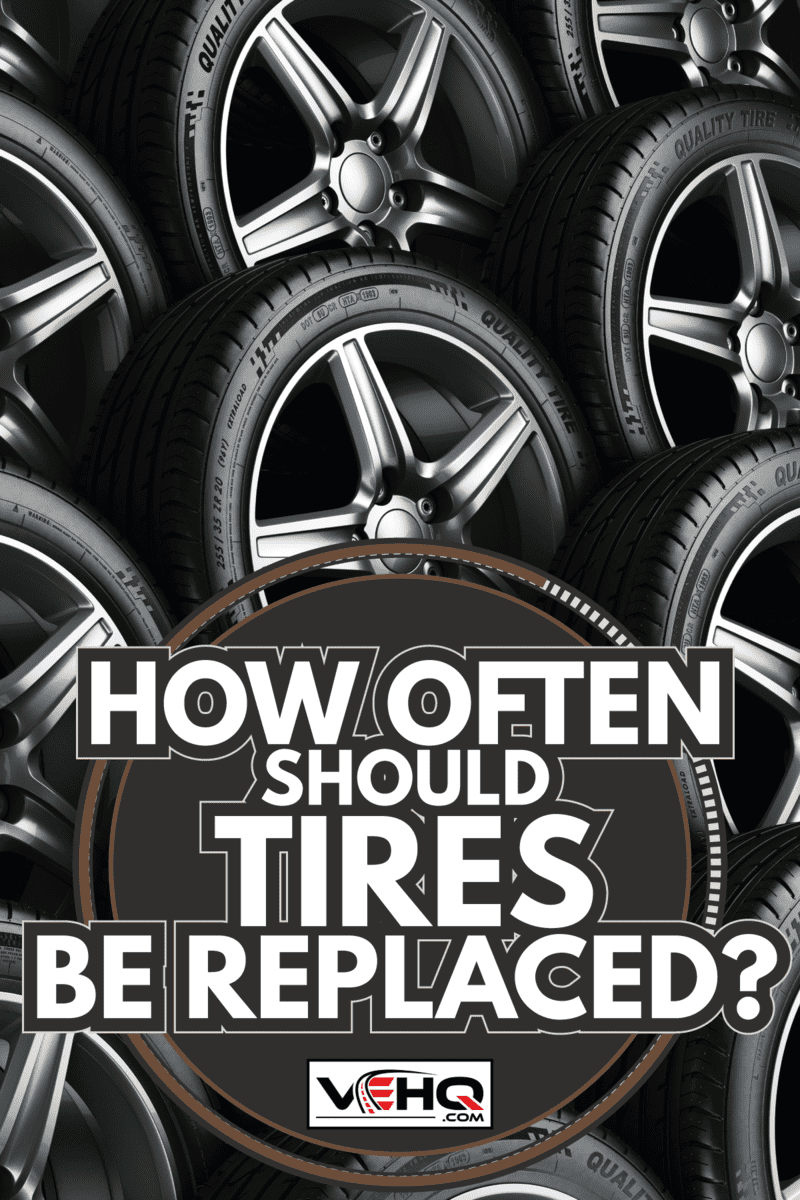
How Often Should You Change Tires?
How often you change your tires depends on how active you are and other factors. In general, for someone who drives regularly, tires can last around 3-5 years. For irregular drivers, it can last as long as 6-10 years.
From here, outside factors will determine how soon you need a change. These include how well you take care of the tires, the type of damage, and tire age. So, if you've thought of stretching their lifespan a bit further, it's possible. But, it's not recommendable.
Let's go over the properties that can force your hand to switch early.
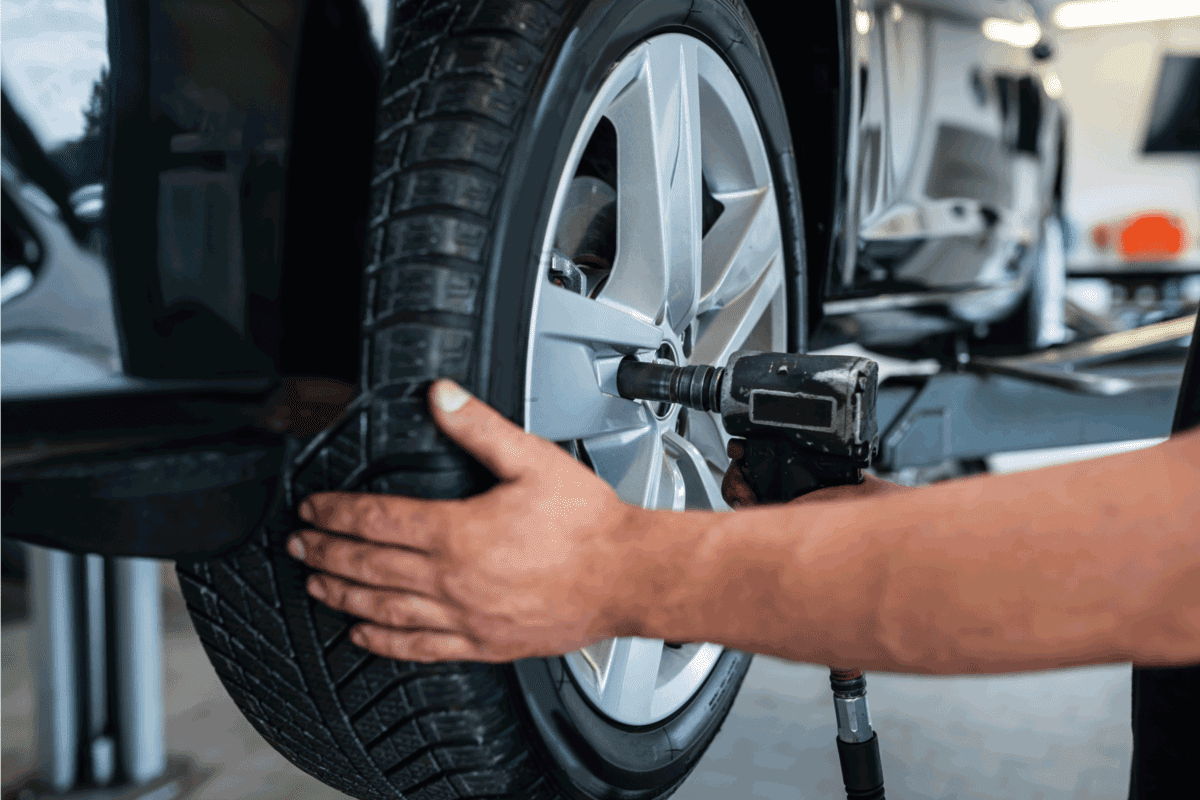
Replacing Your Tires
As mentioned above, several factors indicate how soon you should change your tires. So, when can you tell it's time to switch? The first thing you should know is the age of the tires. This situation applies more to those who weren't keeping track or who've purchased a used vehicle.
In either case, the age of a tire is crucial. Despite how well it might look, if the tire is too old, you still might want to switch for a new set. It might sound wasteful. Who wants to throw away a tire set that's still in good condition?
There's good reasoning as to why you might have to consider the switch. According to the NHTSA, tires become more prone to failure as they age. After the six-year mark, manufacturers recommend you replace the set. Otherwise, you'll have to do an annual inspection.
Checking the Tires Age
To check the age of your tires, you're going to have to inspect the sidewall. There should be a tire identification number labeled 'DOT' somewhere around the area. If it's not on one side, it might be on the other. Once you find it, you will see a 4-digit code.
The first two digits you'll see indicate the week of manufacturing. The last two is the year it was produced. Still, not all tires are the same. Some will have different characters along with numbers. So, it might get confusing figuring out how to decode what they mean.
To give you additional help, here's a YouTube video demonstrating what to look for:
Tread Depth
Another factor that will force your hand to switch is tread depth. It's inevitable because you'll run into various surfaces that might reduce the amount of tread over time. In general, the wear of the tire tread should be even across the whole surface. Meaning, there should be no imbalance on the inside or outside of the tire.
So, you might want to test how worn they are every so often. In a pinch, you can use the penny/quarter test to measure the tread depth. However, for accurate results, you can purchase a tire tread depth gauge. If you have more than 2/32 of an inch of tread depth remaining, you won't need to replace your tires.
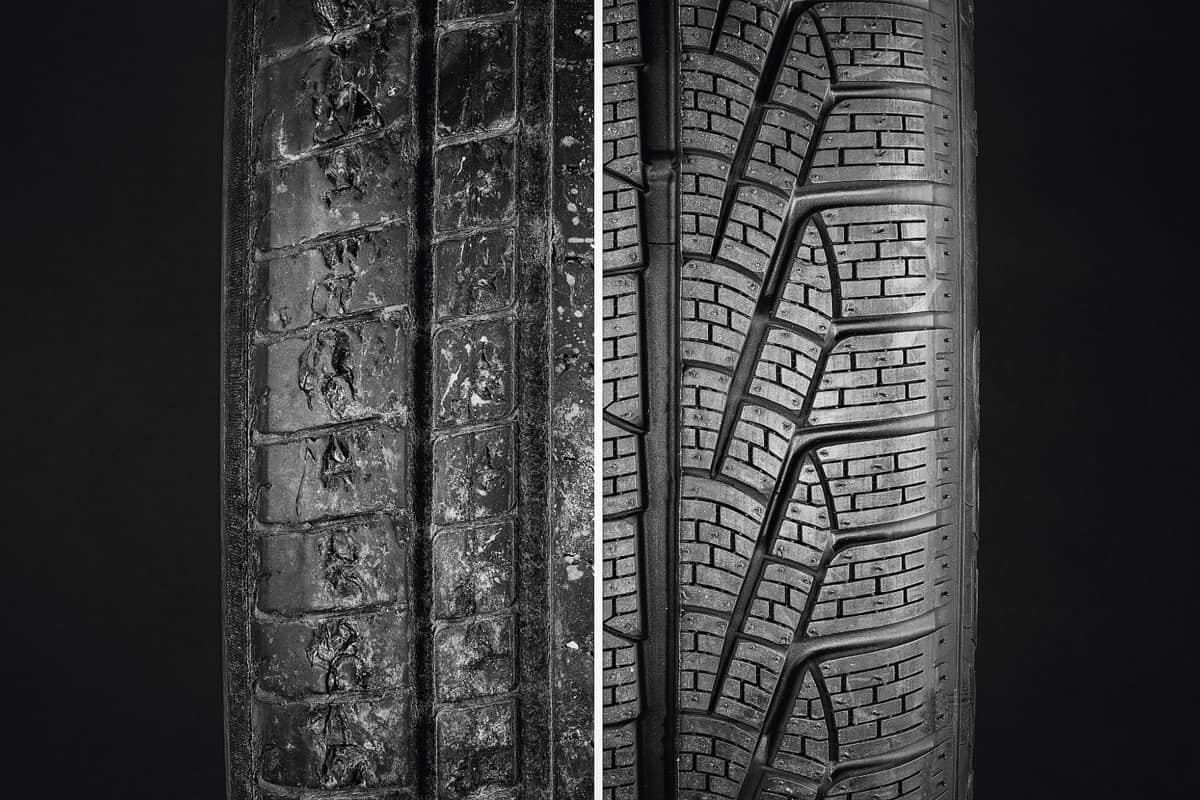
Signs of Damage
Of course, the damage your tires will sustain depends on how well you take care of them. Meaning, you routinely clean them, check for signs of wear, and fill them in with the correct amount of pressure. But, what are some of the damages that might show up on the tire?
The first sign of damage is bubbles or bulges. They indicate air pressure was allowed to reach the outer layers of the tire. So, the structural integrity of the tire won't last as long. Regardless of the condition of the rest of it, if there are bulges, you need to replace the tire immediately.
Another aspect you should pay attention to is each valve cap. A valve cap can be too tight or too loose. You'll know it's no longer adequate if you can't tighten it enough. On the other hand, if the valve cap appears to be too tight, the thread on the stem may become stripped.
Without a working valve cap, things can enter the tire. As a result, it will wear them out quickly. Lastly, routine inspection of the sidewalls and checking for any debris stuck on the tire are also important.
Cracking on the sidewall can come through age. The reason being, that rubber degrades over time. Debris embedded on the tire also comes with use. However, how quickly you deal with dislodging the stones/nails can impact how long your tires last. If you ignore them for too long, you might experience a blowout on the road.
Exposure to Elements
Exposure to elements is one thing most don't take into account. If you don't know, tires degrade faster if they're exposed to ozone for too long. Additionally, too much exposure to sunlight and heat can also alter their structural integrity. The reason is that the oils and chemicals in the tire evaporate when it's exposed to UV rays.
Why Do New Car Tires Wear Out So Fast?
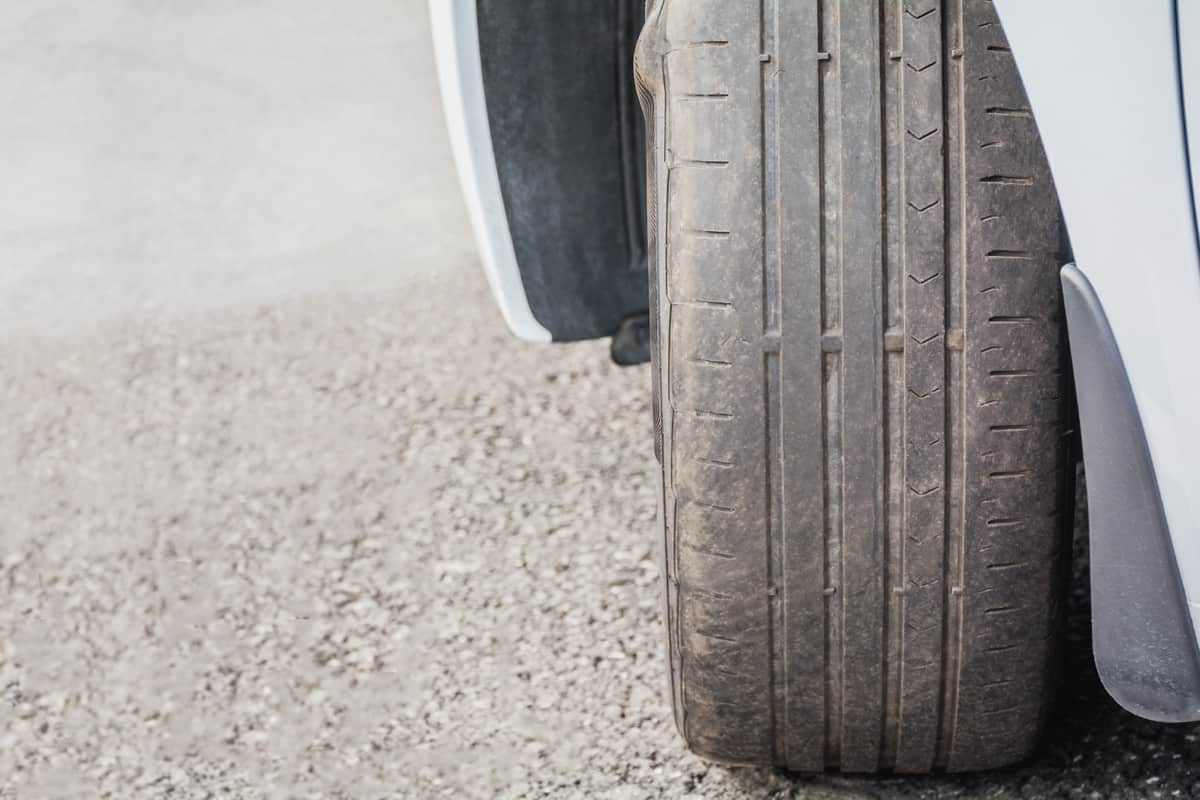
How fast a tire wears out will depend on the manufacturer. As some users suggest, new vehicles use OEM tires that aren't focused on the best mileage. Instead, they focus on giving you the best initial impression. As a result, the OEM tires will provide the best ride. So, they will likely last around 30,000-35,000 miles.
In years, it means the tires will last three years until the vehicle needs a new set. The user goes on further to explain that new cars also have stiff suspension. This helps cushion the ride. In turn, you get a smoother ride.
However, the smooth ride comes at the cost of mileage. If you want the same experience, you'll want to purchase high-performance tires. Though, they tend to run on the higher side of cost. In comparison, the OEM tires on new vehicles cost around $400 for the whole set.
How Long Do Tires Last on Average?
As mentioned above, the lifespan of a tire depends on how active you are. On average, it should last around six years of use. As some suggest, people drive 12,000-15,000 miles per year. So, they recommend changing your tires after three to five years. Of course, how well you take care of the tires also factors into that timeframe.
If you're inattentive with them, they'll last in the three-year range. With proper care, tires can last five years or more. Still, you should expect about five years of usage.
How Many Miles a Tire Should Last?
Using the information above, an average person drives 12,000-15,000 miles a year. As a result, manufacturers recommend you switch them out for a new set after three to five years. When we convert this into miles, they should last around 45,000-60,000 miles. It may last more or less depending on many variables.
How Much Is a Set of 4 Tires?
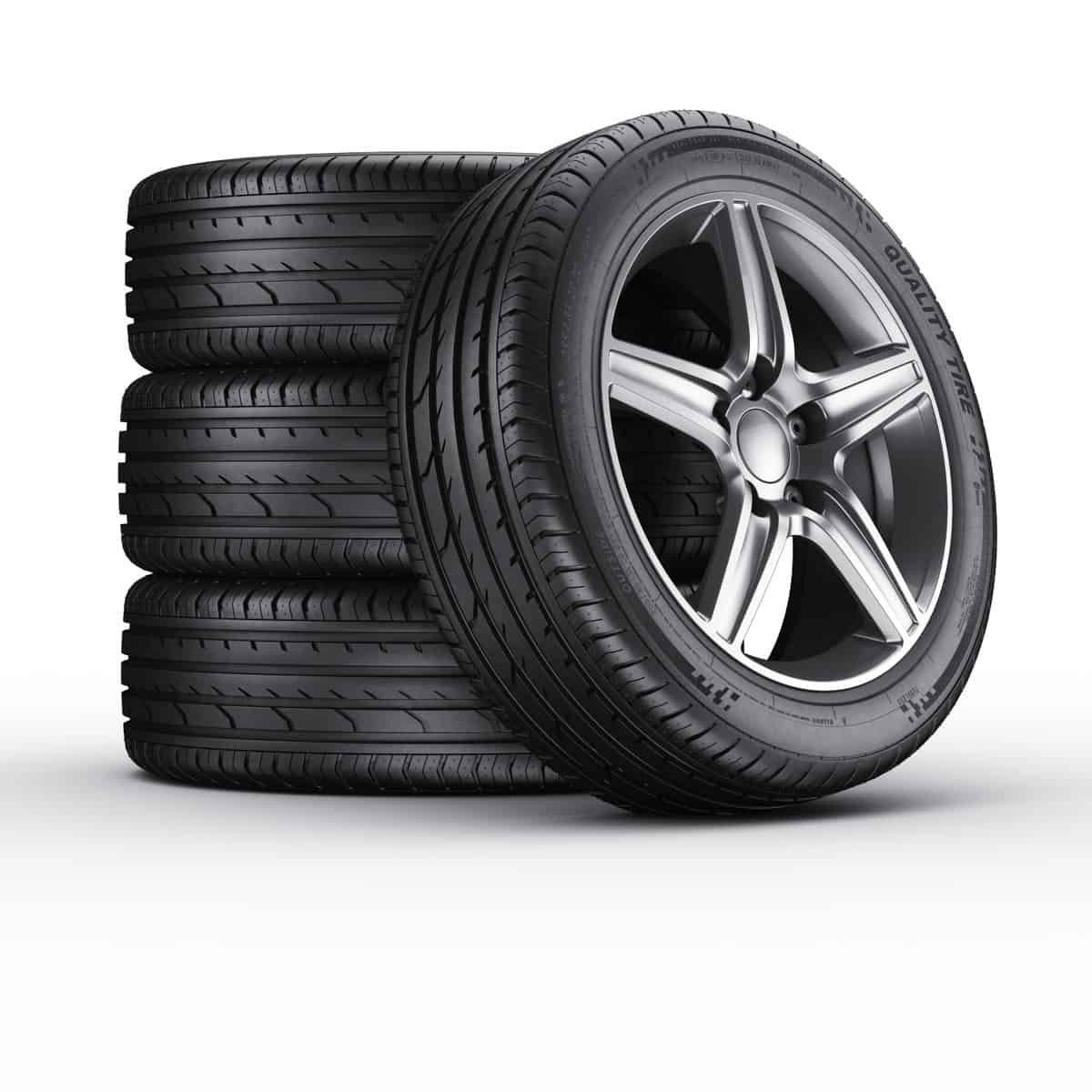
How much you pay for a new set of tires depends on the type of vehicle you handle. Let's go over the general pricing of several sizes of tires:
- 12"-15" tires will run around $80-$150 for all-season and $100-$150 for winter.
- 16"-20" tires will cost around $100-$250 for all-terrain and all-season. If you're buying winter tires, it will cost $200-$400.
- 18"-26" tires will average around $140-$170 for all-season. All-terrain tires can cost more at about $200-$500.
- Performance 16"-26" tires can cost anywhere around $100-$1,000.
One thing to note is that the guideline above is the cost per tire.
Final Takeaway
As you can see now, there's no definite answer set in stone. There are lots of factors that can determine how long your tires last. However, with routine maintenance, they can last you a long while. The opposite case is also true if you're inattentive with them. We hope you found the information above helpful.
Before you go, do you own a set of KO2 tires? They also require maintenance to last you a while. If you'd like to see how long they last, check out our post here.
Do you frequently drive on highways? You might be wondering if they wear your tires faster. If so, you can learn more in our post here. Safe travels!
